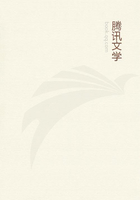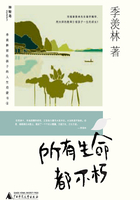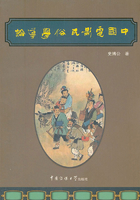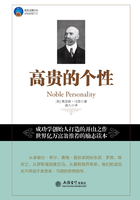A man might be an extreme empiricist in religion (_i.e_. a mystic), and yet might attempt to deduce all other forms of knowledge from the results of his religious experiences, never caring to gather experience in any other realm. Hence the breach between mysticism and scholasticism is not really so wide as may appear at first sight. Indeed, scholasticism officially recognised three branches of theology, of which the MYSTICAL was one.
I think that mysticism and scholasticism both had a profound influence on the mediaeval mind, sometimes acting as opposing forces, sometimes operating harmoniously with one another.
As Professor WINDELBAND puts it: "We no longer onesidedly characterise the philosophy of the middle ages as scholasticism, but rather place mysticism beside it as of equal rank, and even as being the more fruitful and promising movement."[1]
[1] Professor WILHELM WINDELBAND, Ph.D.: "Present-Day Mysticism,"_The Quest_, vol. iv. (1913), P. 205.
Alchemy, with its four Aristotelian or scholastic elements and its three mystical principles--sulphur, mercury, salt,--must be cited as the outstanding product of the combined influence of mysticism and scholasticism: of mysticism, which postulated the unity of the Cosmos, and hence taught that everything natural is the expressive image and type of some supernatural reality;of scholasticism, which taught men to rely upon deduction and to restrict experimentation to the smallest possible limits.
The mind naturally proceeds from the known, or from what is supposed to be known, to the unknown. Indeed, as I have already indicated, it must so proceed if truth is to be gained. Now what did the men of the Middle Ages regard as falling into the category of the known?
Why, surely, the truths of revealed religion, whether accepted upon authority or upon the evidence of their own experience.
The realm of spiritual and moral reality: there, they felt, they were on firm ground. Nature was a realm unknown;but they had analogy to guide, or, rather, misguide them.
Nevertheless if, as we know, it misguided, this was not, I think, because the mystical doctrine of the correspondence between the spiritual and the natural is unsound, but because these ancient seekers into Nature's secrets knew so little, and so frequently misapplied what they did know.
So alchemical philosophy arose and became systematised, with its wonderful endeavour to perfect the base metals by the Philosopher's Stone--the concentrated Essence of Nature,--as man's soul is perfected through the life-giving power of JESUS CHRIST.
I want, in conclusion to these brief introductory remarks, to say a few words concerning phallicism in connection with my topic.
For some "tender-minded"[1] and, to my thought, obscure, reason the subject is tabooed. Even the British Museum does not include works on phallicism in its catalogue, and special permission has to be obtained to consult them.
Yet the subject is of vast importance as concerns the origin and development of religion and philosophy, and the extent of phallic worship may be gathered from the widespread occurrence of obelisks and similar objects amongst ancient relics.
Our own maypole dances may be instanced as one survival of the ancient worship of the male generative principle.
[1] I here use the term with the extended meaning Mr H. G. WELLShas given to it. See _The New Machiavelli_.
What could be more easy to understand than that, when man first questioned as to the creation of the earth, he should suppose it to have been generated by some process analogous to that which he saw held in the case of man? How else could he account for its origin, if knowledge must proceed from the known to the unknown?
No one questions at all that the worship of the human generative organs as symbols of the dual generative principle of Nature degenerated into orgies of the most frightful character, but the view of Nature which thus degenerated is not, I think, an altogether unsound one, and very interesting remnants of it are to be found in mediaeval philosophy.
These remnants are very marked in alchemy. The metals, as I have suggested, are there regarded as types of man;hence they are produced from seed, through the combination of male and female principles--mercury and sulphur, which on the spiritual plane are intelligence and love.
The same is true of that Stone which is perfect Man. As BERNARDof TREVISAN (1406-1490) wrote in the fifteenth century:
"This Stone then is compounded of a Body and Spirit, or of a volatile and fixed Substance, and that is therefore done, because nothing in the World can be generated and brought to light without these two Substances, to wit, a Male and Female: From whence it appeareth, that although these two Substances are not of one and the same species, yet one Stone cloth thence arise, and although they appear and are said to be two Substances, yet in truth it is but one, to wit, _Argent-vive_."[1] No doubt this sounds fantastic; but with all their seeming intellectual follies these old thinkers were no fools.
The fact of sex is the most fundamental fact of the universe, and is a spiritual and physical as well as a physiological fact.
I shall deal with the subject as concerns the speculations of the alchemists in some detail in a later excursion.
[1] BERNARD, Earl of TREVISAN: _A Treatise of the Philosopher's Stone_, 1683. (See _Collectanea Chymica: A Collection of Ten Several Treatises in Chemistry_, 1684, p. 91.)

